The content of the article
The body of a pregnant woman works for two. A new life that is just developing and preparing for independent existence requires a special reverent attitude. Nature took care of it, protecting the life growing in the womb in every possible way: directing the work of my mother's immunity to his defense, providing all the necessary nutrients from the general circulatory system of mother and baby.
And what does a woman herself do? Properly nourished and takes care of your health! But this is the ideal! And if the future mother does not want to give up her habits that she had before pregnancy and change her usual way of life? This is not about sports and work, and the use of alcohol.
Alcohol is the enemy of a new life
There is an opinion that alcohol in small doses is absolutely not capable of harm. A small dose of dry red wine is supposedly beneficial for a pregnant woman: it increases hemoglobin and appetite. Can a child have a drink? The process of drinking alcohol by a pregnant woman can be compared to her joint meal with her child: she divides this dose into two.
Ethanol and its decomposition products are strong toxic substances that act at the cellular level. These substances act on absolutely all the membranes, tissues and internal organs of the embryo. There are hormonal and metabolic disorders.
At that moment, when alcohol enters the blood of a woman, the child also receives a dose. But if a woman receives a small dose relative to her body weight, an embryo weighing less than three kilograms will receive a huge batch of drinks.
If the mother becomes intoxicated for a while and after a while forgets about this condition, the embryo will get severe poisoning, as a result of which serious changes can occur in its forming organs, which in some cases even lead to its death.
Irreparable consequences
Even small doses of a low-alcohol beverage can lead to the development of intrauterine alcoholism, which will affect the forming embryo as follows:
- Occurrence of maxillofacial defects: hypoplasia of the cheekbones; sloping chin; constriction of palpebral fissures; strabismus; paralysis of the muscles of the upper eyelid; short upper lip; “Hare lip”; abnormal structure of the sky.
- Formation of a sloping neck and a small head;
- The birth of a child with low weight;
- Impaired physical development: disproportionate physique, low or excessively tall, inappropriate body weight;
- Deformation of the chest, joints (hands do not bend at the elbows), the underdevelopment of the hip joints; the absence of fingers and toes or the formation of the fingers;
- Pathological changes in the nervous system: microcephaly of the brain (underdevelopment); incomplete fusion of the spinal canal;
- Abnormal formation of internal organs, most often to heart disease, genital disorders.
These are not all pathologies that can develop in a fetus with a diagnosis of alcohol syndrome.The most annoying thing is that it happens quite often. The misconception of many pregnant women that alcohol in small doses does not harm the fetus has led to such terrible figures: for women who have consumed alcohol during pregnancy, childbirth in 20% of cases ends in death of the newborn, since the congenital abnormalities in the baby are not compatible with life. While among non-alcoholic pregnant women, this figure is ten times less.
A drinking woman has impaired functioning of certain organs: the liver, the heart of the pancreas, and the nervous system. All these pathologies also affect the health of the child.
If alcohol enters the circulatory system of the mother and fetus, then oxygen and nutrients are delivered more slowly, and metabolic processes are hampered.
Talking about the acceptable dose of alcohol during pregnancy is absolutely meaningless. The fact is that such doses do not exist. A woman who wants to give birth to a healthy child should completely eliminate alcohol even at the planning stage of the baby.
In anticipation of the birth of a new life
When planning pregnancy, alcohol should be excluded from both future parents: otherwise conception may simply not happen, and if it does happen, then in rare cases the development of pathologies in the fetus can be avoided. The fact is that:
- In the male body, the renewal of sperm composition occurs 1 time in 2-3 months. Spermatozoa ripen, live and contain in themselves those substances that have fallen into the blood of men for this entire period.
- Egg cells ripen in the ovaries for a month, they are stored by substances that enter the female body during this entire period.
Making a conclusion from these facts, it is worth noting: the earlier alcohol toxins are removed from the body before conceiving a child, the less problems will be with the health of future offspring. It is advisable to stop consuming alcoholic beverages at least six months before conceiving.
However, a planned pregnancy is a very rare phenomenon and in most cases, conception occurs after a romantic evening with a glass-other wine. If there is no intoxication in the body of the future mother, then problems with fetal pathology can be avoided. During the period of conception and prior to the implantation of a fertilized egg in the wall of the uterus, the fetus is protected by special natural mechanisms.But this does not mean that it is guaranteed you can avoid the development of diseases in the baby.
Conception under intoxication
Unfortunately, for babies conceived in a state of alcoholic intoxication, there are pathologies of the nervous system, mental disorders occur ten times more often. The debate of scientists from different countries about the effect of alcohol on male sperm has been going on for a long time. Many argue that the pathology of the fetus is not associated with the future father adopted before conceiving a glass. After all, the process of maturation of sperm takes about three months.
In recent scientific studies, it has been confirmed that alcohol begins to act on sperm immediately after it enters the blood. In the sperm of a healthy, non-alcoholic male, up to 25% of the pathological sperm are present, they do not take part in conception and die.
After ingestion of any alcoholic drink, the number of such sperm cells increases, which leads to the fact that the egg cell is fertilized by the pathological sperm cell. As a result, the fetus has various genetic disorders: the number of chromosomes changes. For this reason, a child may be born with diseases such as Down syndrome, Patau, and oligophrenia.
The egg matures a month, alcohol can affect its quality.However, the wine drunk by the woman on the eve of conception will bring much less harm than the alcohol accepted by the man.
As for the period from the moment of conception, then the responsibility for the health of the fetus falls entirely on the mother, as in the other months of pregnancy.
After conception took place, nature begins to follow this principle: either a healthy embryo or none. That is, only a healthy embryo can survive for up to 3 months. If pathological changes occur, the embryo dies and miscarriage occurs.
What causes alcohol
A woman taking alcohol during pregnancy faces the following problems:
- Drunk a glass of alcohol, even in small quantities in the early period often leads to miscarriage.
- Excessive consumption of alcoholic beverages causes fetal malformations.
- Chronic drunkenness leads to fetal alcohol syndrome.
- Even a moderate acceptance of low alcohol beverages leads to abnormalities in the brain of the fetus. The sad fact is that these changes cannot be detected during pregnancy.They appear much later after the birth of the baby.
- When alcohol enters the mother’s blood, the liver cells of the embryo, its vascular system, heart, and brain are affected. As a result, the child in the future will have a violation of brain activity.
- In addition to alcohol, narcotic drugs, psychotropic, painkillers and anticonvulsants affect the development of pathologies in a baby.
- A mother who is addicted to alcohol damages her eggs, causing genetic changes in the fetus, which can lead to his death or the development of serious diseases.
- The baby, born in a family where frequent use of alcohol is taken, lags behind his peers in physical and mental development, his immunity is weakened, he is often sick. And besides this, the baby has an innate need for alcohol - addiction.
- A growing embryo can be damaged by many factors, the most harmful of which is alcohol.
- Do not forget about the content in some drugs alcohol. It is necessary to read the composition of the funds on the label and to prevent the use of such funds during pregnancy.
A pregnant woman should get used to the idea that she is responsible not only for her life, but also for the life inside her. It is up to the parents what the future life of this little man will be: happy and healthy or filled with suffering and pain.
The main thing when planning a pregnancy is to remember: no short-term pleasure is worth the life and health of the unborn child.
Video: how alcohol affects the development of the fetus in the womb


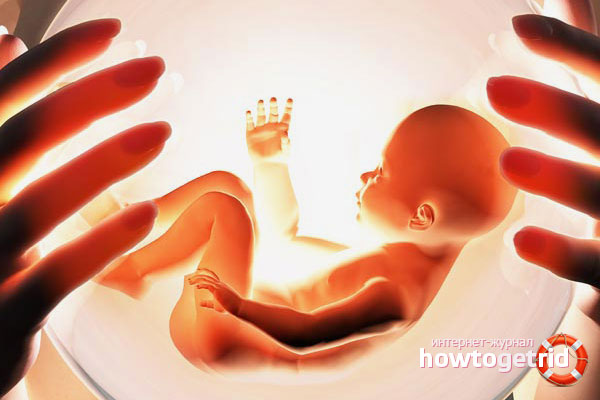

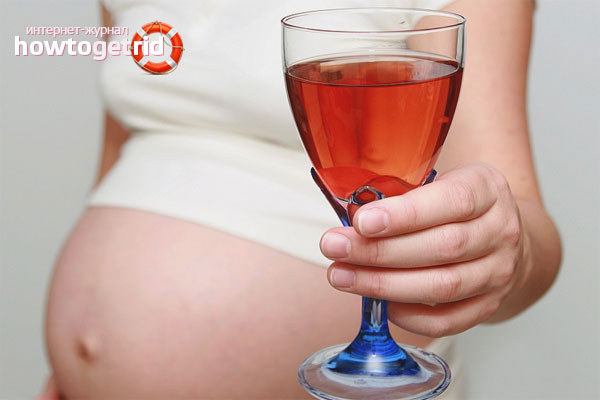


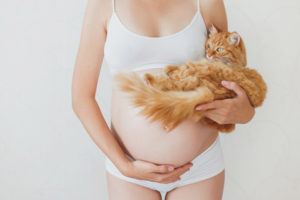
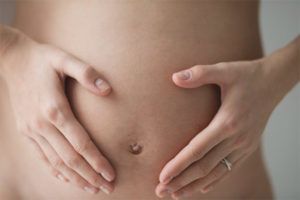

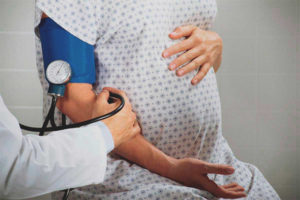
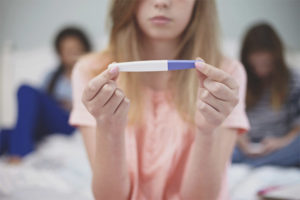
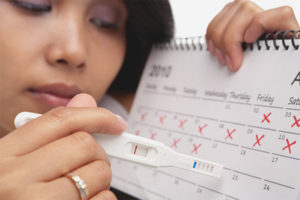

To send